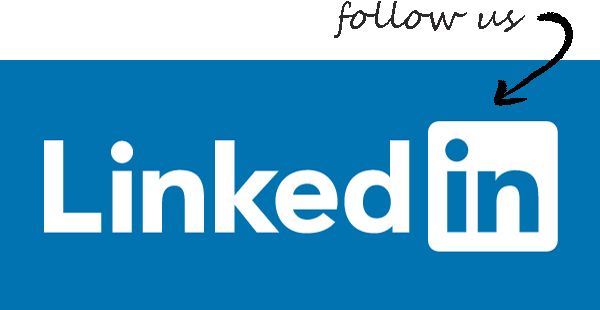
 Web Content Display
Web Content Display
News
 Web Content Display
Web Content Display
Alumni Stories: Paula Dobosz
"Success for me certainly has nothing to do with the finances. I am happy to be able to do what I really like, and with amazing people whom I trust and thanks to whom I can grow. Thanks to my work, I can meet unique personalities I always learn something from, not only scientifically. There is this fantastic sentence by Thor Heyerdahl that I love and could certainly make my definition of success: "Limits? I've never seen one, but I've heard that they exist in some people's minds." (...)"
Name and surname: Paula Dobosz
Place of residence: Warszawa, Polska
Job position: Cancer Research Leader: geneticist, specialist in genomic medicine and immuno-oncology
Field of study: biology, specializing in genetics
What is your best memory of your time at the Jagiellonian University?
I have many great memories, and I am happy to think back to that period, and I love Cracow with absolute love till this day. I have the best memories from the time of working in the lab, which was related to my thesis. It was then that I was infected with genetics so effectively that no subsequent attempts to change my profession were successful :) In the team of Prof. Styrny and Mrs. Dr. Lenartowicz, the atmosphere was almost family-like, which was good for development and learning. There was no unhealthy competition, but quite a lot of trust even for graduate students, who at the very beginning cannot do much in the lab. You could look far and wide to find such a model of team management, especially in Poland, and I have no doubts today that it was this that determined many of my later choices.
How did your career start? What were the turning points?
It started quite early, because for various reasons I had to become independent very quickly, which, unfortunately, sometimes affected my grades, but on the other hand it provided me with many valuable experiences. Therefore, I applied myself selectively to studying as much as I could find time for: I gave priority to subjects that were interesting and useful for my plans. My multiple re-takes of the "Plant Physiology" exam became near-legendary and a popular party joke that some people tell each other till this day :) The choice of genetics was not my first choice - I was still fascinated by the human brain, immune system and viruses at school. I was planning to go to some faraway corner of the globe after college to study Ebola. I didn't know much about genetics besides what I read in school textbooks. But it turned out differently: genetics and cancerous diseases won out, and now, years later, I think it was a great choice. Until today, I have had the opportunity to work and live in seven different countries on four continents, all because of genetics! Undoubtedly, the turning point was medical studies in Cambridge. It was an absolutely amazing experience in every way. Classes with Nobel Prize winners who talked about technologies and possibilities that we never dreamed of in Poland. This is where science really works at every step. Nobody was surprised by laptops in a pub or restaurant, because you can work anywhere. It was then that I realized that there was a topic I might stay awake at night for immuno-oncology. Each next step was related only to this field, for example, going to Israel for a post-doc programme.
How did your education contribute to the development of your career?
I do what I love - so I think I'm very lucky and undoubtedly education plays a big role in this. Cancerous diseases, however, are demanding friends and there is no way to stop learning even for a short while, because science will get far ahead of you and it will be difficult to catch up again. Science is more of a lifestyle than a profession, and it requires constant availability and the ability to quickly adapt to sudden changes. I definitely wouldn't recommend it to those who like to plan ahead or work from 8 am to 4 pm five days a week.
Please tell us about your current job. What are you doing now?
I always do a lot of things because I like it when a lot is going on. I specialize in cancer genomics and immuno-oncology, and my research focuses on the communication methods that cancer cells use to stop the human immune system's aggression. Genetics has a big part to play in this. This is probably the first time in the history of medicine that research into new drugs has outdone basic research into the biological mechanisms underlying diseases. We try to invent drugs, although we do not know the enemy.
These are generally my research interests. At the moment, however, due to the current pandemic, I am involved in virus-related projects, such as sequencing the genomes of people who have had a mild COVID19 infection and of those who have developed an extremely severe form of the disease. The aim of the project is to search for genomic markers that could be a clue - as with H.simplex or HIV viruses. We know that some people in the population have genetic variants that protect them to some extent from getting sick.
I am pleased to co-create the research team of the MNM Diagnostics start-up where we try to implement whole-genome diagnostics in oncology. But this is only one of our projects, because WGS (whole genome sequencing) and ML (machine learning) have many applications in medicine. It takes a very long time to secure research grants, and we want things to just happen: we want Polish patients to have access to the same diagnostic and treatment options as patients from other Western countries, especially England where all our careers in science started and which is very well-developed in terms of genomic research. That is how the idea of establishing MNM Diagnostics emerged. The idea of scientific start-ups is still not very popular in Poland, and the very word "company" is not associated with science. We hope that this will also change over time because start-ups affiliated with research centres offer many opportunities for development, and for patients themselves - faster access to medical novelties.
I also popularize science, especially via the Internet: for almost 10 years I have been running the blog "Facts and Myths of Genetics", which this year has also been published online at https://genetyka.bio. I think that this project is extremely important in the era of media hype, information overkill and fake news.
What are your biggest challenges right now?
A challenge, and certainly a big dream: in the near future, I would like to set up my own research group in Poland, focusing on research in the field of immuno-oncology. The coming true of this dream comes with new challenges, the biggest of which will be to create an atmosphere of mutual trust and cooperation in the team so that everyone feels motivated to grow. It is a huge responsibility that brings a lot of satisfaction. Sometimes I get e-mails from my former students who are eager to share about their lives - where they are, what they are doing, what their plans are. They sometimes ask me for an opinion on a subject, even though we haven't seen each other for many years because they are studying or working on a different continent. I see this as a great personal success - that they managed to make their dreams come true, and still remember me. It's very nice.
What is your definition of success?
Success for me certainly has nothing to do with the finances. I am happy to be able to do what I really like, and with amazing people whom I trust and thanks to whom I can grow. Thanks to my work, I can meet unique personalities I always learn something from, not only scientifically. There is this fantastic sentence by Thor Heyerdahl that I love and could certainly make my definition of success: "Limits? I've never seen one, but I've heard that they exist in some people's minds."
What advice / guidance do you have for students who are entering the job market?
I don't know if I am the right person to give such advice. When I recruit, I pay attention not only to education (university matters!), but also to experience and commitment. Did the person do anything extra during their studies that would reveal their actual interest in the field? Job interviews do not work, because stress changes our behaviour to the point where we can no longer be ourselves. When we come to a new job, we rarely have all the necessary practical skills, so being ready for continuous learning is also crucial for me. I am also happy to read the part of CVs, where applicants talk about their interests and extra skills because developing your own interests in today's crazy world can be difficult. Sometimes, what would seem irrelevant can actually prove very useful in a given job, such as DIY (creativity!) or memory training by learning languages.
How do you envision the cooperation of the Jagiellonian University with its graduates? What can graduates of the Jagiellonian University expect?
First of all, it would be nice if this cooperation finally became a reality, because I'm sorry to say that so far it has been rather a pipe dream. I am glad that something is changing in that respect, and I support all networking initiatives a lot. The Jagiellonian University is a university with traditions, and I see no reason why it should not be on a par with Cambridge or Oxford, because they aren't much different historically. The Jagiellonian University is located in a beautiful place, and many wise people work within its walls. They should be appreciated and promoted to restore the institution to its former glory. For this to happen, profound changes are necessary, although I'm not convinced that evolution is better than revolution here. Above all, however, politics should not get confused with science. Science is facts, not opinions.

